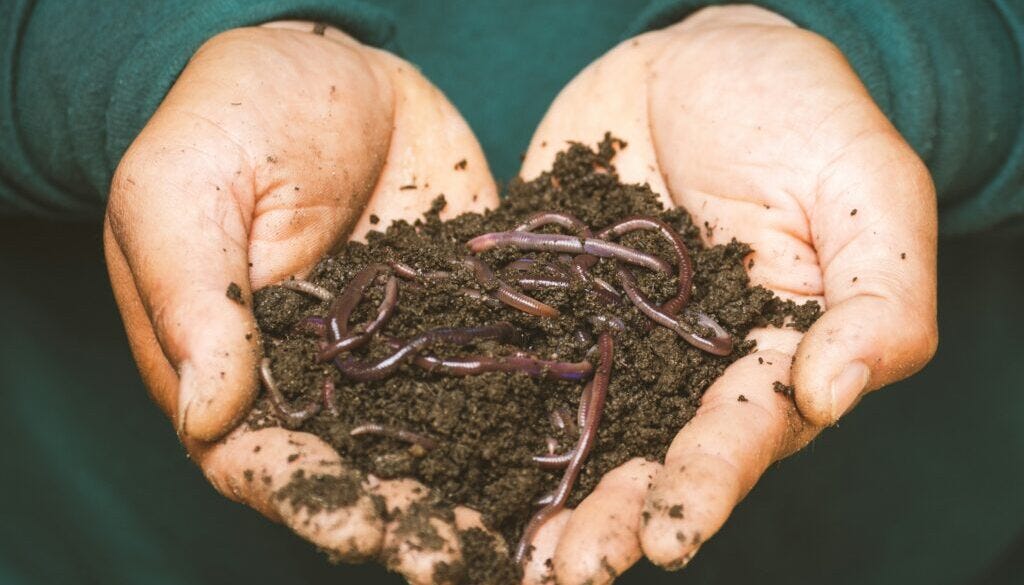Must-read recap: The New Lede's top stories
Weed killer in pregnant women; EPA allegedly hides PFAS data; plastics recycling fraud; dicamba to be sprayed despite court ban; chlormequat in urine samples; neonics harm worms; lead pipe crackdown.
Alarming levels of weed killer found in study of pregnant women
(A version of this story was co-published with The Guardian.)
Pregnant women in a key US farm state are showing increasing amounts of a toxic weed killer in their urine, a rise that comes alongside climbing use of the chemicals in agriculture, according to a new study published Friday.
The study, led by the Indiana University School of Medicine, showed that 70% of pregnant women tested in Indiana between 2020 and 2022 had an herbicide called dicamba in their urine, up from 28% from a similar analysis for the period 2010-2012 that included women in Indiana, Illinois and Ohio.
Notably, the new study found that along with a larger percentage of women showing the presence of dicamba in their bodies, the concentrations of the weed killing chemical increased more than four-fold.
The study also looked for the presence of 2,4-dichloroacetic acid, better known as 2,4-D, in the urine samples, finding that 100% of the women in both the earlier study and the new one had 2,4-D in their urine, with detectable, but not significant, increases in concentration levels. (Read the rest of the story.)
EPA is illegally concealing data about PFAS in millions of plastic containers, lawsuit alleges
The US Environmental Protection Agency (EPA) is breaking the law by concealing health and safety data about a class of toxic chemicals called PFAS found in millions of plastic containers, two environmental advocacy groups allege.
The agency is refusing to turn over data on toxic per- and polyfluoroalkyl substances in high-density polyethylene (HDPE) plastic containers produced by the company Inhance Technologies, citing “confidential business information.”
Public Employees for Environmental Responsibility (PEER) and the Center for Environmental Health (CEH) have been seeking data held by the EPA about the company and its containers through a 2023 Freedom of Information Act (FOIA) request. But the agency has redacted and withheld key information, the groups allege.
They filed a lawsuit against the EPA on Thursday claiming the agency is violating the Toxic Substances Control Act (TSCA) by refusing to provide the requested data for public scrutiny. (Read the rest of the story.)
Plastics industry engaged in 50 years of fraud over recycling, report alleges
Plastics makers and petrochemical industry players have engaged in a decades-long fraud aimed at deceiving the public about plastic recycling, according to a new report that spotlights freshly uncovered industry communications and internal documents.
The report comes as the global plastic waste crisis deepens, and as environmental advocacy organizations are increasingly calling for major fossil fuel and petrochemical companies to be held responsible for plastic pollution that poses a threat to human and planetary health.
“Despite their long-standing knowledge that recycling plastic is neither technically nor economically viable, petrochemical companies—independently and through their industry trade associations and front groups—have engaged in fraudulent marketing and public education campaigns designed to mislead the public about the viability of plastic recycling,” asserts the new report, released by the Center for Climate Integrity (CCI) on Thursday. (Read the rest of the story.)
EPA says dicamba will be sprayed this summer despite court ban
Despite a recent federal court ruling banning three agricultural weed killing products, U.S. regulators said this week that they will continue to allow farmers to spray the pesticides this summer.
In what amounts to a win for the agrochemical industry and for many farmers using the industry’s seeds and chemicals, the Environmental Protection Agency (EPA) issued an order on Wednesday laying out a framework for continued use of millions of gallons of dicamba herbicides. The EPA said farmers may still apply product that has already been shipped from agrochemical companies Bayer, BASF and Syngenta. The companies cannot sell additional supplies over what has already been labeled and shipped, however, the EPA said.
The announcement is the latest move in a years-long saga that has played out across US farm country, pitting farmer against farmer. While many growers say the dicamba products – sprayed over special dicamba-tolerant crops – are necessary to fight back increasingly difficult-to-kill weeds in their fields, many others say their own orchards, gardens and farm fields not planted with dicamba-tolerant crops are being damaged by the drift of the pesticide across the countryside. (Read the rest of the story.)
Another pesticide problem on your plate
Highlighting a fresh health concern for US consumers, a new study has found that a farm chemical linked to reproductive problems is increasingly showing up in the urine of people across the United States.
The study, published in the Journal of Exposure Science & Environmental Epidemiology on Thursday, reported that the majority of a set of nearly 100 urine samples collected from people in different states over the last few years showed the presence of a pesticide called chlormequat, which is used in agriculture to control growth in plants.
Notably, the study found that both frequency of detection and concentrations of the chemical were starkly higher in 2023 than in samples collected from prior years.
“While the sample size is small and more research will be needed to verify the extent of the problem, it is very concerning to see chlormequat chloride showing up in these samples, and at increasing levels,” said Danielle Melgar, a specialist in food and agriculture advocacy work with the Public Interest Research Group. (Read the rest of the story.)
Pesticide-treated seeds harm earthworms, study finds
Commonly used pesticides pose a toxic threat to earthworms, creatures considered crucial for the health of soil used to grow crops, according to a new study published Wednesday.
The study builds on evidence that a class of insecticides called neonicotinoids, or neonics, are harming a range of species important for planetary health. Neonics have been banned in many countries but are popular with farmers in the United States.
The authors of the new study said they found that when earthworms were exposed to four different types of neonics, as well as the fungicide difenoconazole, they suffered damage to their mitochondrial DNA and gained significantly less weight than earthworms not exposed to the chemicals. The pesticides were especially damaging when the worms were exposed to a neonic plus the fungicide in combination. (Read the rest of the story.)
EPA’s proposed lead pipe crackdown spurs debate
Proposed revisions to a national drinking water regulation designed to reduce exposure to lead in US drinking water are drawing applause from many sectors, but also criticism as industry groups worry about how to meet the stricter standard and environmental and health advocates fear the proposed requirements don’t go far enough.
The regulatory move comes after public outcry in response to recognition that communities around the country could be at risk of the type of contamination that occurred in Flint, Michigan in 2014 when the town’s drinking water became contaminated with lead from corroded pipes. The toxic metal, which is a known health hazard, particularly to children, has also been found in the tap water of Chicago residents.
“Now, there’s a new proposed rule, there’s lots of money, and there is a deadline, so now people are mobilizing to implement,” said Alfredo Gomez, director of Natural Resources and Environment at the US Government Accountability Office (GAO). But, he said, “some folks are supportive of the proposed rule, and others are concerned.” (Read the rest of the story.)









